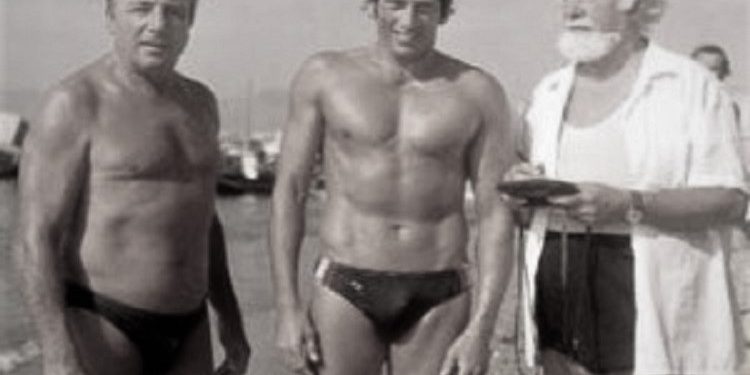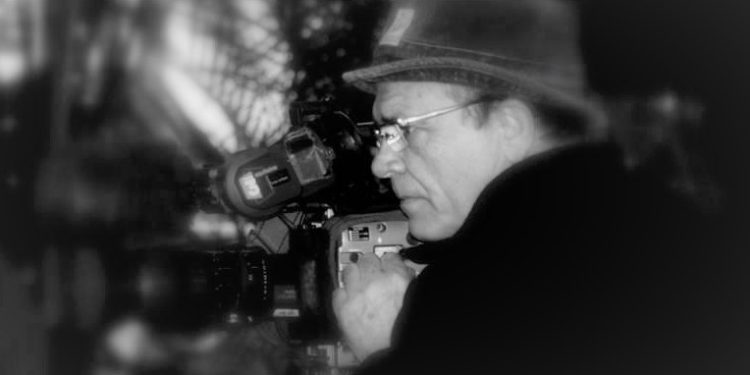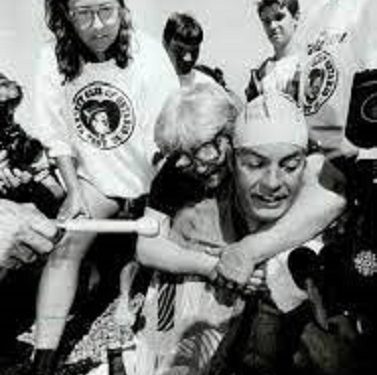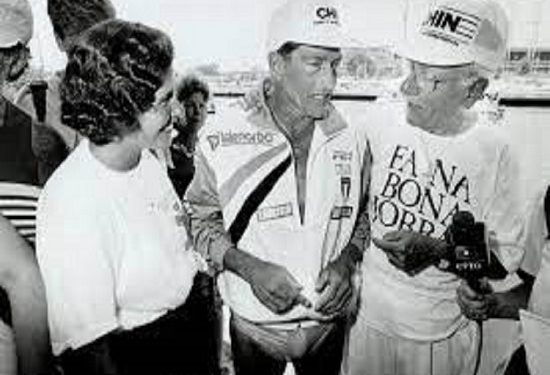By Vasil Qesari
Memorie.al/ The overthrow of the great totalitarian edifice in Albania would leave behind, not only the change of the system, accompanied by lots of hopes, mirages and cries of happiness but, unfortunately, also many wounds, dramas, victims, dust, milk and disappointments from the most different. Ten years and more after that event, which deeply shook society, completely overturning many previous codes, rules and concepts, people still continue to ask themselves such questions as: What really happened in society Albanian, during the last 50 years of the dictatorship? How was it possible that the system managed to warp everything? Why did people accept it? What was the totalitarian logic of the transformation of society and the individual? How were the structures of totalitarian mechanisms conceived and functioning: propaganda, secret police and the exercise of the ideology of terror? How did it happen that among all the communist countries of Eastern Europe, Albania was considered an exception or a special case? Why did Enver Hoxha remain blindly, fanatically loyal to Stalin until the end, turning the country into a prison where violence, fear and purges continued until the end of the 80s? Why was the country so insanely isolated, locking people up between bunkers and barbed wire? Why, then, did all the above phenomena happen…?! The book “Post-scriptum for Dictatorship” does not claim to provide definitive answers to the above questions, or the complexity of the reasons that brought and maintained the totalitarian power in Albania. Nor is it a complete, deep and comprehensive fresco of the life and suffering that people experienced during that system. Its author, perhaps, has the merit that together with the retrospective view of the totalitarian period as well as the zeal of a passionate analyst, he has tried to turn his head back once again, to give not only his personal memories and opinions, but also to return once again to the vision of that era with the simple philosophy of preserving the Memory and supporting the Appeal to never forget the well-known maxim, that…the corpse’s nails and hair continue to grow even after death! Ten years or more after the great revolution, the book in question has current value and we hope it will be appreciated by the reader because, as an Albanian researcher also says… the greatest evil that can happen to a people comes when he fails to analyze his own past. An amnesic people are forced to be constantly neuropathic and repeat their painful experiences…!
Paolo Pinto’s welcome…!
After the macabre murder in the waters of Ksamil, for which the French Foreign Ministry protested several times with force to the Albanian authorities, the diplomatic relations between the two countries was strained and cold as never before. Paris had urgently called the French ambassador in Tirana M. Martin, while a planned visit of the French Deputy Foreign Minister O. Stirn, in response to the visit of his Albanian counterpart Xenofon Nushi, was urgently cancelled.
Meanwhile, not only in the French press, but also in the European press, after many years of silence, a series of articles were published that dealt with the tragic fate of a forgotten country, which was described as the Tibet of Europe. A place where it was not known what was happening and where, no foreign journalist was allowed to enter.
Many well-known magazines published interviews with diplomats accredited in Albania, accompanied by photographs showing Enver Hoxha, the military parades of the November holidays or aspects of life in the country. (Most of them were reproductions of propaganda photographs taken from the magazine ‘L’Albanie Nouvelle’, which was published in Tirana in several foreign languages).
In them, Albania, the autarkic socialist country, which still faithfully and proudly held the memorials of the dictator Stalin, was rightly described as a large prison of people where fear, violence and terror reigned.
Meanwhile, the Ksamil incident caused Amnesty International to finally publish a special brochure about political oppression, mass persecution of the population, imprisonments, political exiles as well as the lack of the most basic freedoms of human rights.
In such an atmosphere, described as hostile and anti-socialist, the Albanian government tried to improve its image, making some concessions regarding foreign relations. Such was the permission of the famous Italian swimmer, Paolo Pinto, to come to Vlora.
He had won many international trophies in the crossing of distances
Long, swimming across the Strait of Messina, the Strait of Gibraltar, the distance between the Italian coast and the island of Elba, etc.
Installed in front of the Albanian coast, in Salento, Paolo Pinto long dreamed of traversing the Otranto channel and, precisely, the distance from the Karaburuni peninsula to the southern coast of Italy. However, his requests as well as those of the Sports Association “Friends of Paulo Pinto” were repeatedly rejected by the Albanian embassy in Rome.
And here, starting after the incident of Ksamil, unexpectedly, he had received a fax where, among other things, the Albanian embassy informed him that such an activity was welcomed with particular pleasure and even, in addition to it, other bilateral sports activities were also proposed…!
Pinto arrived in Vlora on board an Italian ferry, accompanied by a line of motorboats and tourist sailing yachts. It was the first time, after the Second World War, that a “Lloyd Adriatic” company ferry docked at the city’s only pier, which was built by the Italians during the fascist occupation.
On its board, there were over three hundred tourists, including representatives of the official authorities of Lecce, Otranto, journalists, reporters, TV crews of private channels, RAI, businessmen, Marxist-Leninist nostalgic and various visitors.
What no one had thought was happening…! A horde of tourists had unexpectedly landed in Vlorë, something that had been organized with great interest and preparation long before. For the reception of the friends, the highest authorities in the district were engaged and, of course, most of the staff of the Department of Internal Affairs.
But, despite all the noise that this news caused, the people who had come out to receive the guests at the pier of Skela were few: a group of pioneers chosen to present bouquets of flowers to the Italian officials, some representatives of the Executive Committee of the Club Sportsman “Flamurtari”, two or three local journalists, some operatives of the Security (in civilian clothes), as well as a cameraman of the “Sports Section” of Albanian Television.
(The latter, as soon as the ferry docked at the pier, started filming boarding and disembarking without fail, sometimes on board the ship and sometimes among the crowd of tourists. Orders were given to film as many people as possible, especially portraits, which they would then be scrutinized by Counterintelligence.
Listening to the comments of one of the secretaries of the Party Committee, it was learned that there was a fear that among the foreigners who arrived, they might have also infiltrated fugitives or Albanian immigration agents, who worked for foreign secret services).
Then, the Albturizmi buses specially arrived from Tirana transported the arrivals from the port to the “Adriatik” Hotel, where the staff was prepared as rarely before. There, for days, the operatives of the State Security were also installed incognito, who would watch day and night in its internal environments.
(Of course, together with their collaborators, who were tasked with guarding the building and following the movements of foreigners outside it).
That same day, in the Executive Committee of the district, its chairman, Luan M., hosted a cocktail party. “…We hope and wish that crossing the distance of 90 miles that separates neighboring Albania from Italy, by our outstanding swimmer Paolo Pinto – said, among other things, the mayor of Otranto – will serve as a first step for the establishment of a bridge of friendly ties as well as the beginning of mutual commercial, cultural and sports exchanges”.
For his part, Luan M., as always euphoric in appearance and gestures, but with the phrases of the old Avaz, after boasting about the achievements of Albania under the leadership of the Party, also counted all the indicators of the increase in the well-being of the people. In short, in the end, the answer to the Italian colleague was that: the principle and mission of our society has been and will remain the construction of socialism, relying entirely on our own forces without extending a hand to anyone.
The President’s speech, of course, left a bitter taste and disappointed the Italian representatives, who after that, were forced to listen to the translation of a long pathetic political-ideological speech where there was no hope for the building of the bridge supposed, or any other sign, even a small one, of the opening of the neighboring country…!
Meanwhile, for the success of the visit of the Italians to Vlorë, (which, from the first day of Paolo Pinto’s arrival, was accompanied by great publicity from Radio Televizioni Albanian and the newspaper “Sporti Popullor”), it was learned that the deputy himself was personally interested / the chairman of the Council of Ministers, Comrade Manush Muftiu. Interest in hypocrisy and phrases…?
Because, for their part, the Italians had completely opened their cards.
They were ready to sign exchange agreements in various fields. The demagogic answer of the Albanian side was: Later! See you later…!
And, in the meantime, the sports activity failed to serve, as it was thought and predicted, the propaganda goals of the Albanian authorities. It ended unsuccessfully and did not see the expected international response.
To make matters worse, Paulo Pinto (who was reserved the best room in the “Adriatiku” hotel), exactly one day before the start of the Vlora-Otranto crossing, while he was trying to close the window curtains, fell and was crushed the shoulder!
Thus, the Otranto canal crossing was canceled and postponed for another time. The Italians returned. Disappointed Meanwhile, in many television reports and articles published by foreign reporters who came on that occasion, Albania was presented as it was, an ideological and economic fossil, surrounded from all sides by a universe of unimaginable absurdities…! Memorie.al















